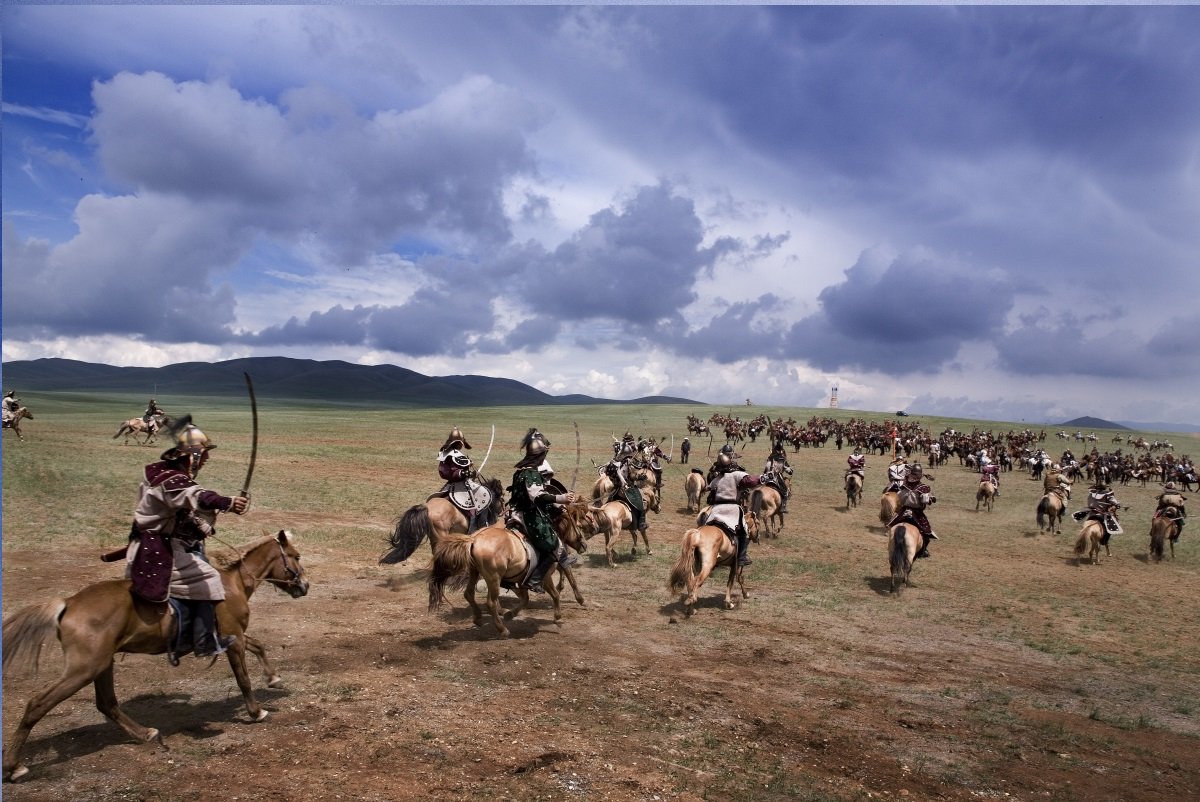The dubious history lesson Russian President Vladimir Putin gave American talk show personality Tucker Carlson during their recent interview has elicited a colorful response from a former Mongolian head of state.
"After Putin's talk, I found a Mongolian historic map," Tsakhia Elbegdorj, who served as the country's fourth president from 2009-2017, wrote on social media Monday.
Many historians have derided the account Putin gave during the February 6 interview with Carlson, which they say was manipulated to justify Moscow's war with Ukraine, now entering its second year.
Putin framed the Ukrainian people as a nonentity, having never coalesced into a single state until the founding of the Ukrainian Soviet Socialist Republic in the early 20th century. He contrasted this with the Russian civilization's roots over a millennium ago.
Accompanying Elbegdorj's post were maps of the Mongol Empire of the 13th and 14th centuries. One shows the breadth of the vast but short-lived empire, which at its peak covered 9 million square miles.
Another map superimposes the outline of the empire over present-day boundaries, including the entirety of China, Kazakhstan, Mongolia, and many smaller states as well as large swathes of Russia.
After Putin’s talk. I found Mongolian historic map. Don’t worry. We are a peaceful and free nation🌏 pic.twitter.com/w5c2Hr0cQK
— Mongol Tsakhia ELBEGDORJ (@elbegdorj) February 11, 2024
A third map juxtaposes the Mongol kingdom's holdings with those of the Roman Empire at its second-century peak, showing that of the two, the latter would fit neatly inside the former.
A fourth map shows the Mongol Empire dwarfing early Russia—then the Principality of Moscow under Ivan the Great—as it appeared shortly after it gained independence from the Mongol Golden Horde in the late 15th century.
Jokingly reassuring Putin, former President Elbegdorj wrote in his post: "Don't worry. We are a peaceful and free nation."
"Vladimir Putin is trying to construct a narrative backwards, saying Russia as a state began its development in the ninth century," Sergey Radchenko, a Soviet-born British historian at the Johns Hopkins School of International Studies, told the BBC.
"You could equally say that Ukraine as a state began its development in the ninth century, exactly with the same kind of evidence and documents [that Putin cited in the interview]," Radchenko said.
Russia's Foreign Ministry did not immediately respond to Newsweek's written request for comment.
Putin's interview also sparked conversations about historical claims among social media users in China, which shares a long border with both Russia and Mongolia.
"According to history, Russia should return us Vladivostok and vast territory stolen 100-something years ago," an X user going by Robert Wu said.
"Going further afield, today's Mongolia and Russian Siberia were both territories of China in the Tang Dynasty with its capital in Xi'an, another person said on China's X-like social media platform Weibo.

Uncommon Knowledge
Newsweek is committed to challenging conventional wisdom and finding connections in the search for common ground.
Newsweek is committed to challenging conventional wisdom and finding connections in the search for common ground.
About the writer
Micah McCartney is a reporter for Newsweek based in Taipei, Taiwan. He covers U.S.-China relations, East Asian and Southeast Asian ... Read more
To read how Newsweek uses AI as a newsroom tool, Click here.






